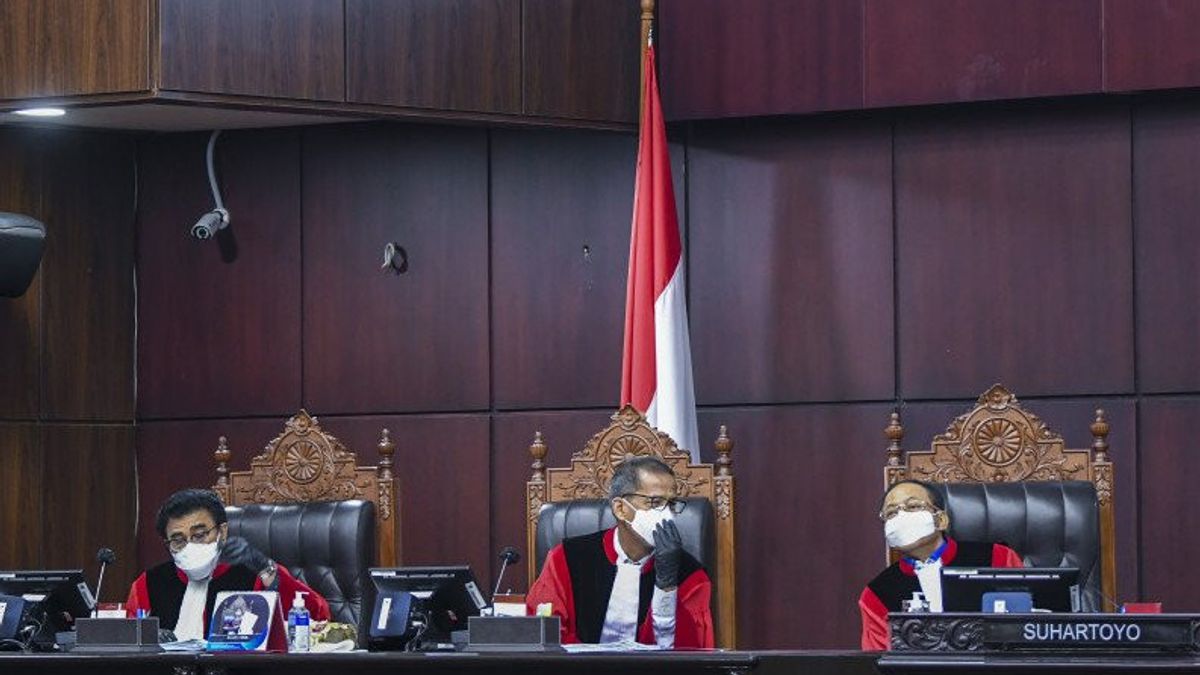JAKARTA - The Constitutional Court (MK) has stated that it is the police's authority to stop motorists on the road for identity checks as contained in Article 16 paragraph (1) letter d of Law Number 2 of 2002 concerning the Constitutional Police of the Republic of Indonesia (Polri).
The statement is based on a written statement quoted by Antara, Wednesday, January 26. This affirmation is a decision on the submission of judicial review of Law Number 2 of 2002 concerning the Indonesian National Police (UU Polri) by two Indonesian Christian University (UKI) students Leonardo Siahaan and Fransiscus Arian Sinaga.
"The verdict adjudicates, states that he rejects the petitioners' petition in its entirety," said Chief Justice of the Constitutional Court Anwar in the trial for pronouncing the verdict.
Previously, in the application for case Number 60/PUU-XIX/2021, two applicants argued that Article 16 paragraph (1) letter d of the National Police Law stated that in order to carry out the tasks referred to in Articles 13 and 14 in the field of criminal proceedings, the National Police had the authority to order Stopping suspected people and asking and checking their IDs can create a sense of worry and fear in them, especially at night.
In addition, during the examination, the applicant stated that there were actions by police officers who often scolded, shouted, shouted at the driver being examined, and even carried out movements that had the potential to degrade human dignity.
In fact, according to them, patrolling activities of police officers like that which are also shown on television or videos on YouTube show police actions that degrade human dignity and value.
In response to this argument, in the legal considerations read out by Constitutional Justice Manahan MP Sitompul, the Constitutional Court is of the opinion that the absence of a police authority limit regulated in Article 16 paragraph (1) letter d of the Police Law is not the cause of police officers taking actions that demean the dignity and honor. others.
The problem that the petitioners argue is not a matter of the constitutionality of the norm, but a matter of implementation of the norms of Article 16 paragraph (1) letter d of the Police Law.
The Constitutional Court also considers that the issue of implementing norms related to the broadcast of police activities that are rampant in the mass media has clear boundaries as regulated in laws and regulations, professional codes of ethics, and other implementing regulations.
"Therefore, both the police and the mass media are expected to always be careful in carrying out their duties and functions so that they remain in the corridor that upholds human rights and obeys the applicable laws and regulations," said Manahan MP Sitompul.
Thus, according to the Constitutional Court, Article 16 paragraph (1) letter d of the Police Law is a constitutional norm.
The English, Chinese, Japanese, Arabic, and French versions are automatically generated by the AI. So there may still be inaccuracies in translating, please always see Indonesian as our main language. (system supported by DigitalSiber.id)













